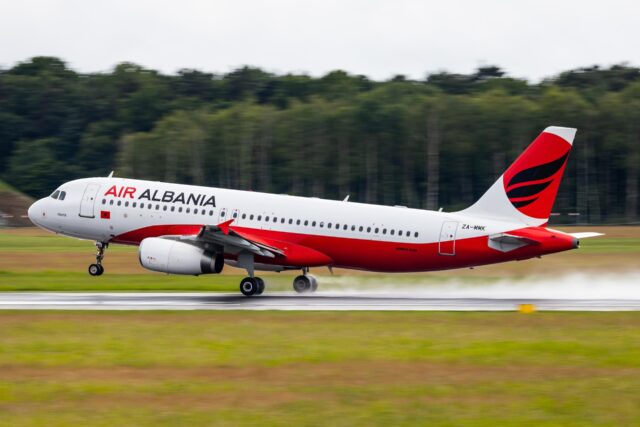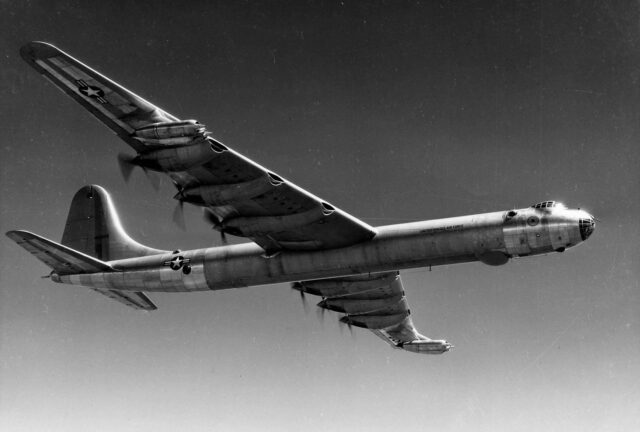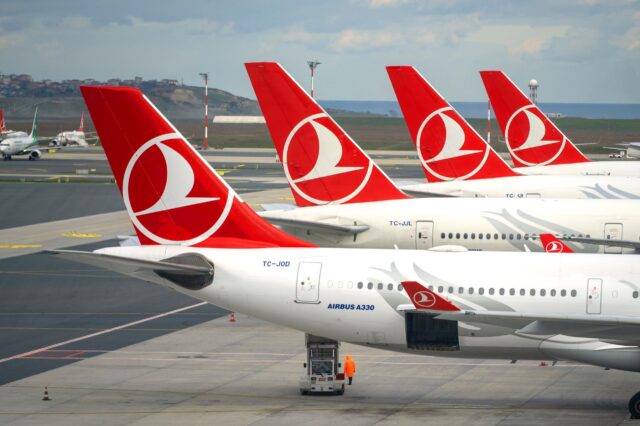USDOT orders end to 9-year Delta–Aeroméxico joint venture citing “ongoing anticompetitive effects”

September 16, 2025

The US Department of Transportation has ordered Delta Air Lines and Aeromexico to end their 9-year joint venture by January 1, 2026, citing “ongoing anticompetitive effects in U.S.-Mexico City markets that provide an unfair advantage.”
The order ends both DOT’s approval under 49 U.S.C. § 41309 and the grant of antitrust immunity (ATI) under 49 U.S.C. § 41308 that has shielded the carriers’ coordination on pricing, capacity, and scheduling since 2016.
Delta’s global joint ventures
Delta Air Lines has built a network of immunised transatlantic and transpacific alliances, which regulators have historically permitted to strengthen US carriers’ global competitiveness.

- Air France–KLM & Virgin Atlantic—Antitrust-immunised JVs covering transatlantic Europe–US routes
- Korean Air—Coordinates schedules and pricing on transpacific US–Korea flights
- LATAM Airlines—Strategic partnership; codesharing and joint planning under development.
- WestJet—Joint venture approved but not fully implemented.
The Aeroméxico decision, however, shows limits to the USDOT’s tolerance of such agreements. Unlike those markets, US regulators said the Mexico City market lacks enough competition to justify continued antitrust immunity.
USDOT finds Delta-Aeroméxico JV causes market distortions and loss of competition
The USDOT found the joint venture now controls nearly 60% of US–MEX traffic and airport slots, giving Delta and Aeroméxico a dominant position that suppresses competition and reduces consumer benefits.

The order also points to systematic market distortions by the Mexican government, including:
- Confiscating US carrier slots at MEX and redistributing them
- Banning all-cargo flights from MEX, forcing carriers to relocate, and raising costs
- Imposing opaque and non-standard slot allocation practices that favour Aeroméxico
- Capping hourly operations at MEX from 52 to 43, constraining new entry
The DOT concluded these steps violate Mexico’s obligations under the 2015 U.S.–Mexico Air Transport Agreement (“Open Skies”) and are contrary to the Mexican government’s “commitment to promote and facilitate an international aviation system based on competition among airlines in the marketplace.”
Delta and Aeroméxico fall short on growth and connectivity
The USDOT’s analysis found the Delta–Aeroméxico alliance had grown more slowly than competitors and shifted away from connecting traffic, instead focusing on high-yield nonstop origin-and-destination passengers.
This ran counter to expectations that immunised joint ventures should stimulate more capacity and connectivity across both networks, especially at a hub as large as Mexico City.

The USDOT also flagged cargo market distortions, noting the joint venture now carries 73% of U.S.–MEX cargo, benefitting from access that rivals have been denied.
USDOT rejects Delta Air Lines and Aeroméxico objections
The order to dissolve the joint venture follows years of regulatory scrutiny. The Biden administration had considered revoking the joint venture’s antitrust immunity as early as 2024, amid rising US complaints about Mexican government restrictions on rival carriers.
In July 2025, the DOT formally proposed to dismantle the venture, prompting Delta and Aeroméxico to mount a defence of their partnership. The airlines argued that their collaboration supports 4,000 U.S. jobs, $310 million in GDP, and $800 million in annual consumer benefits. They warned of widespread route cuts if the ATI is revoked.

In its order, the USDOT dismissed these figures as inflated and speculative, noting both carriers can still cooperate on a non-immunised basis—through codesharing, loyalty program links, and joint marketing—while competing on pricing and capacity under US antitrust law.
The USDOT opened the decision for comments. The US Department of Justice Antitrust Division, American Airlines, Allegiant, and Viva Aerobus supported DOT’s move, emphasising the need to restore fair competition and uphold Open Skies principles.
United Airlines remained neutral on the decision, but argued that the two carriers drew “false equivalencies” between competitive factors in Mexico City and other congested cities, such as Lisbon or Tokyo, because of the Mexican government’s unique restrictions on the market.
Delta Air Lines is disappointed by the USDOT decision
Delta Air Lines said of the final order to dismantle its joint venture with Aeroméxico:
“We are disappointed that the Department of Transportation has chosen to terminate its approval of the strategic and pro-competitive partnership between Delta and Aeromexico, a decision that will cause significant harm to U.S. jobs, communities, and consumers travelling between the U.S. and Mexico. We are reviewing the Department’s order and considering next steps.”
The airline added that “all flights will continue to operate as normal, unless otherwise contacted by Delta.”
USDOT nixes JetBlue–American Airlines “Northeast Alliance” and approves JetBlue–United “BlueSky” partnership
The US has recently ended another US airline joint venture, deeming it uncompetitive. The JetBlue-American Airlines “Northeast Alliance,” launched in July 2020, allowed extensive coordination of schedules, capacity, pricing, and even some revenue sharing on overlapping routes—particularly in the New York City–Boston corridor, including slots at key airports like JFK, LGA, and Logan.

The US Department of Justice sued in 2022, arguing that the alliance harmed competition in domestic markets. In May 2023, a federal judge ruled the alliance anticompetitive and ordered it to be unwound. The court found that passenger choice and price competition were substantially diminished.
The Supreme Court declined to hear American Airlines’ appeal in June 2025, making the decision final. Both carriers subsequently ended the alliance as required by the court.
However, not all airline partnerships fail. The USDOT approved JetBlue and United’s newly proposed “Blue Sky” partnership in July 2025.

The partnership will let travellers book flights on either airline’s website and earn or redeem frequent flyer points interchangeably across both carriers.
As part of the deal, JetBlue will grant United access to up to seven daily round-trip slots at New York JFK starting in 2027. JetBlue expects the collaboration to generate $50 million in additional operating profit beyond its prior forecasts.
As reported by Reuters, JetBlue president Marty St. George said the partnership will give customers “access to hundreds of new flights and destinations” through a traditional interline model.
Spirit Airlines opposed the deal, arguing to US regulators that it is anticompetitive and could encourage similar tie-ups among other major carriers, but the USDOT disagreed.
















